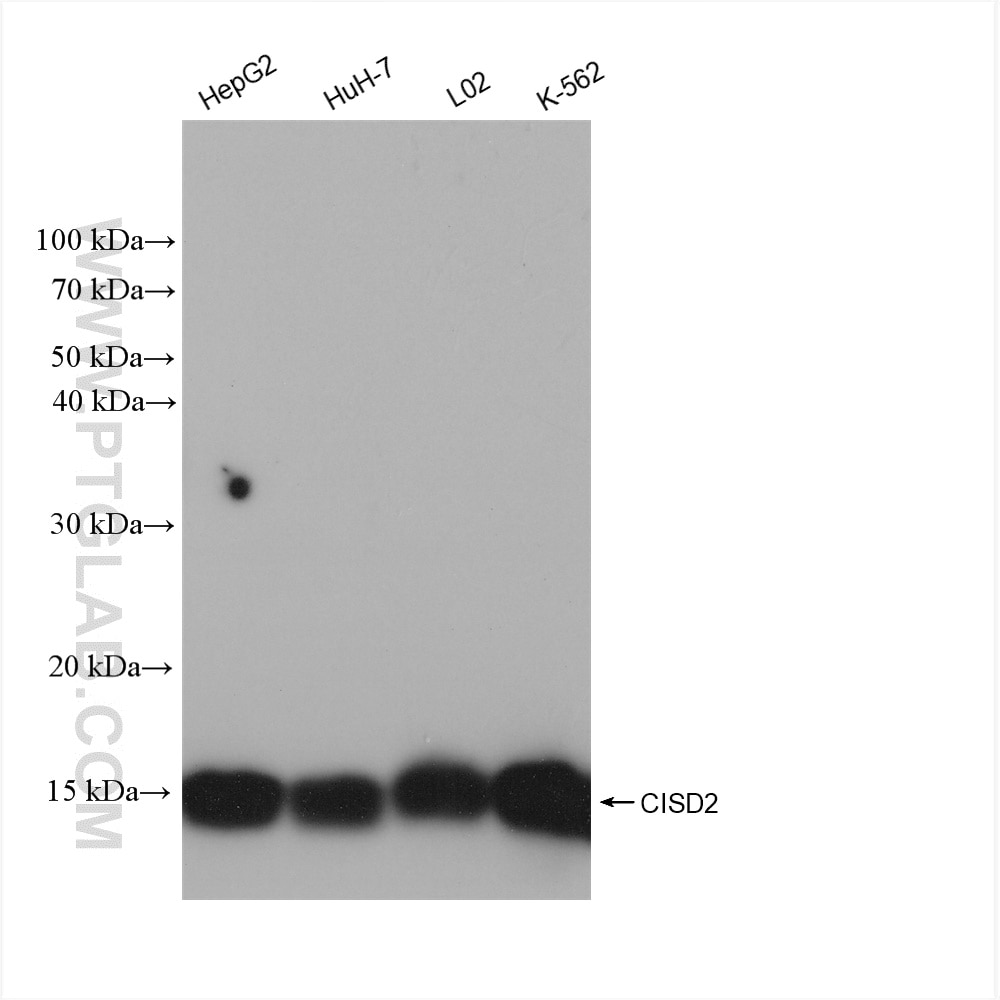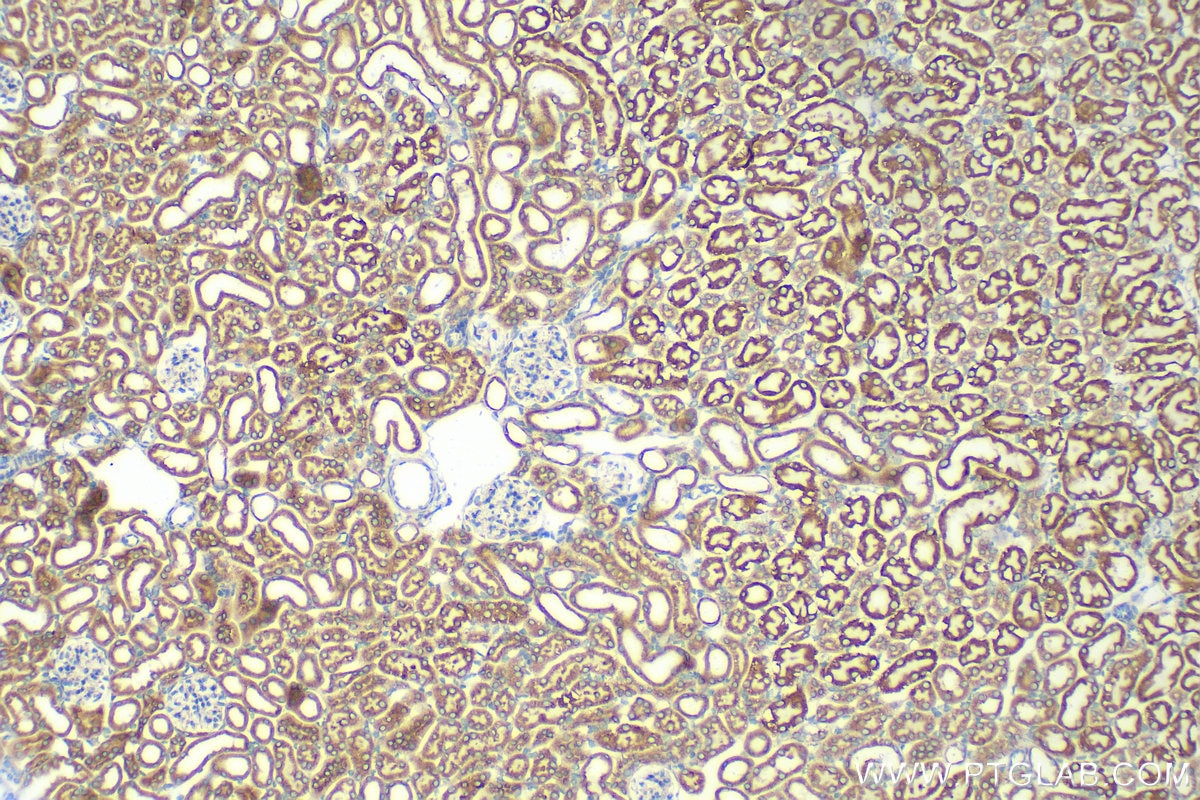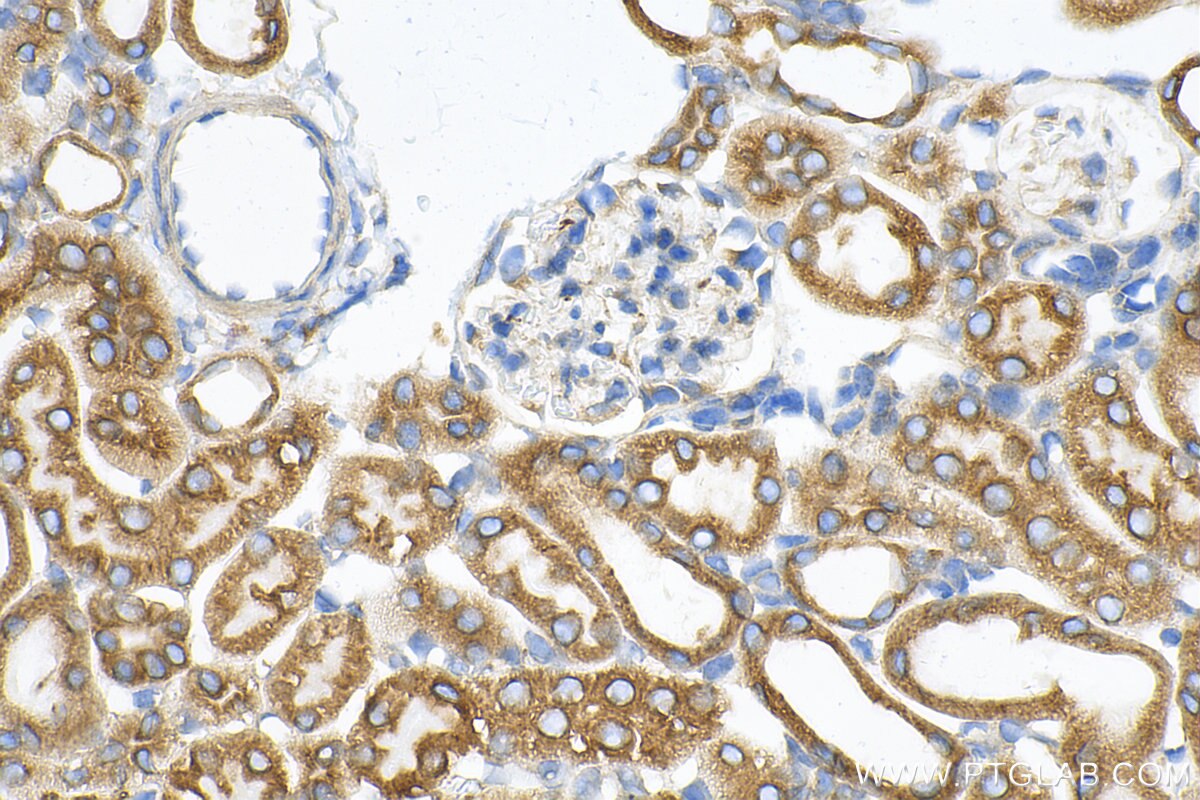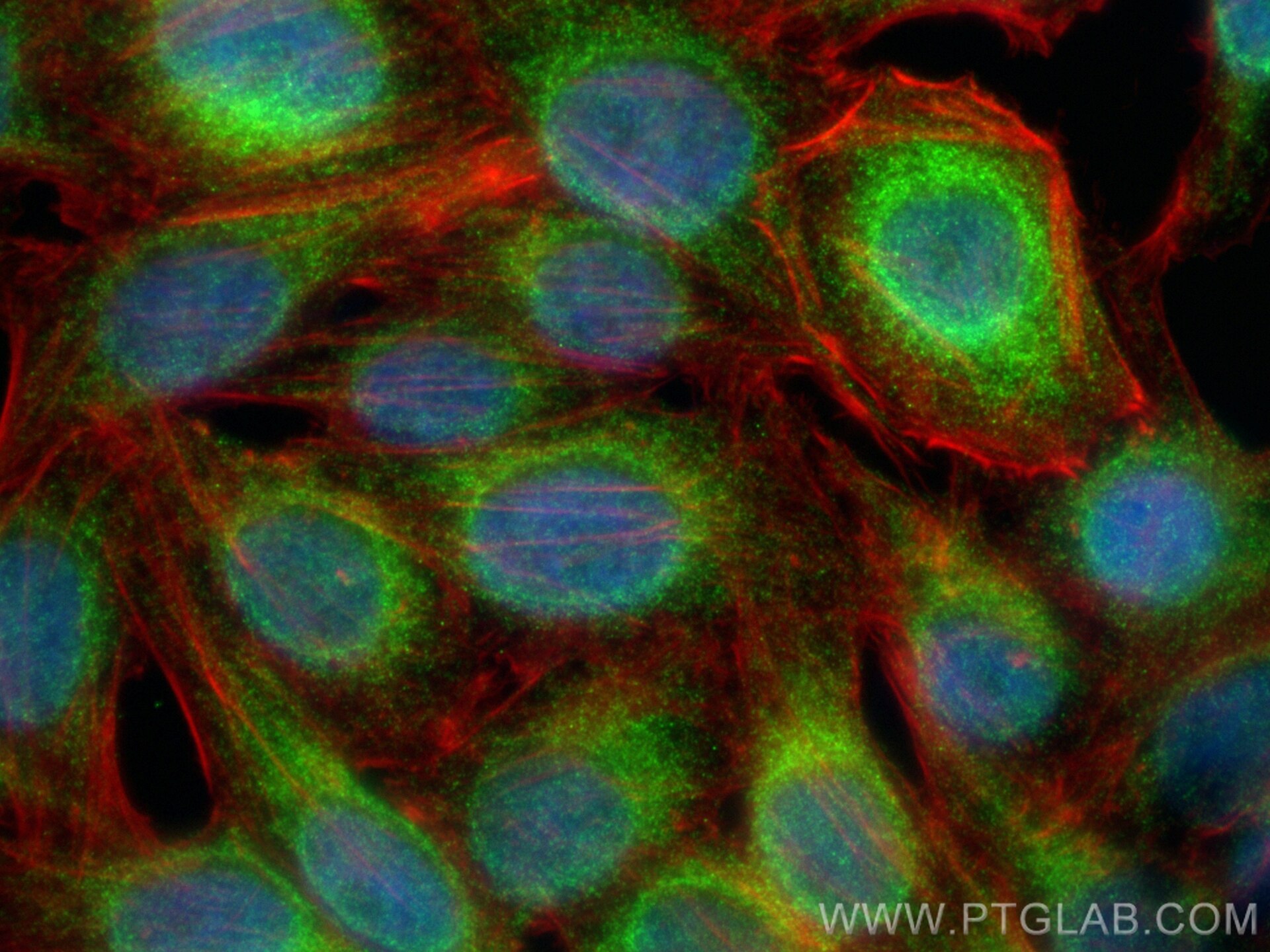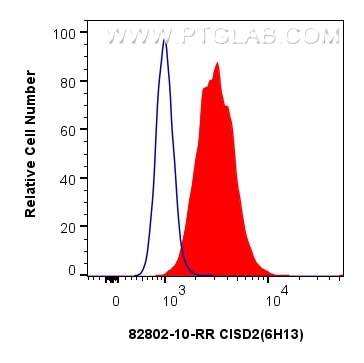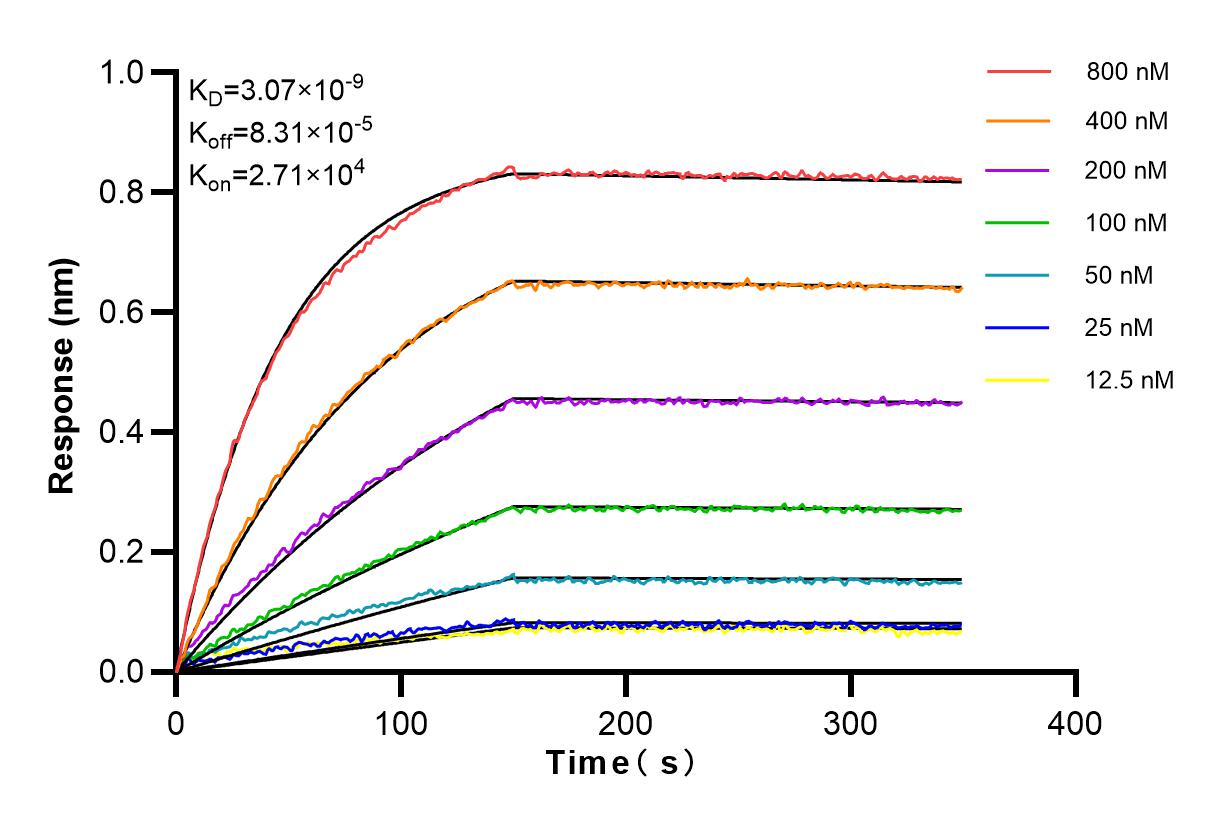Tested Applications
| Positive WB detected in | HepG2 cells, HuH-7 cells, L02 cells, K-562 cells |
| Positive IHC detected in | mouse kidney tissue Note: suggested antigen retrieval with TE buffer pH 9.0; (*) Alternatively, antigen retrieval may be performed with citrate buffer pH 6.0 |
| Positive IF/ICC detected in | HepG2 cells |
| Positive FC (Intra) detected in | HepG2 cells |
Recommended dilution
| Application | Dilution |
|---|---|
| Western Blot (WB) | WB : 1:1000-1:5000 |
| Immunohistochemistry (IHC) | IHC : 1:50-1:500 |
| Immunofluorescence (IF)/ICC | IF/ICC : 1:200-1:800 |
| Flow Cytometry (FC) (INTRA) | FC (INTRA) : 0.25 ug per 10^6 cells in a 100 µl suspension |
| It is recommended that this reagent should be titrated in each testing system to obtain optimal results. | |
| Sample-dependent, Check data in validation data gallery. | |
Product Information
82802-10-RR targets CISD2 in WB, IHC, IF/ICC, ELISA applications and shows reactivity with human, mouse samples.
| Tested Reactivity | human, mouse |
| Host / Isotype | Rabbit / IgG |
| Class | Recombinant |
| Type | Antibody |
| Immunogen |
CatNo: Ag4172 Product name: Recombinant human CISD2 protein Source: e coli.-derived, PGEX-4T Tag: GST Domain: 61-135 aa of BC032300 Sequence: PKKKQQKDSLINLKIQKENPKVVNEINIEDLCLTKAAYCRCWRSKTFPACDGSHNKHNELTGDNVGPLILKKKEV Predict reactive species |
| Full Name | CDGSH iron sulfur domain 2 |
| Calculated Molecular Weight | 135 aa, 15 kDa |
| Observed Molecular Weight | 15 kDa |
| GenBank Accession Number | BC032300 |
| Gene Symbol | CISD2 |
| Gene ID (NCBI) | 493856 |
| RRID | AB_3670556 |
| Conjugate | Unconjugated |
| Form | Liquid |
| Purification Method | Protein A purification |
| UNIPROT ID | Q8N5K1 |
| Storage Buffer | PBS with 0.02% sodium azide and 50% glycerol, pH 7.3. |
| Storage Conditions | Store at -20°C. Stable for one year after shipment. Aliquoting is unnecessary for -20oC storage. 20ul sizes contain 0.1% BSA. |
Background Information
CISD2 gene encodes a 15 kDa CDGSH iron-sulfur domain-containing protein 2, which is also named Miner1 or NAF-1, this protein was reported on endoplasmic reticulum membrane or mitochondrion outer membrane. Defects in CISD2 are the cause of Wolfram syndrome type 2 (WFS2), a rare disorder characterized by juvenile-onset insulin-dependent diabetes mellitus with optic atrophy. CISD2 regulates autophagy program by interacting BCL2, contributing to antagonize BECN1-mediated cellular autophagy at the endoplasmic reticulum.
Protocols
| Product Specific Protocols | |
|---|---|
| FC protocol for CISD2 antibody 82802-10-RR | Download protocol |
| IF protocol for CISD2 antibody 82802-10-RR | Download protocol |
| IHC protocol for CISD2 antibody 82802-10-RR | Download protocol |
| WB protocol for CISD2 antibody 82802-10-RR | Download protocol |
| Standard Protocols | |
|---|---|
| Click here to view our Standard Protocols |

